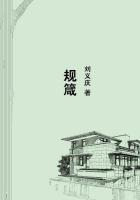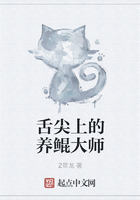Other and younger critics, who have attained to a cock-certain mood of negation, are apt to blame him because, in fact, he did not finally agree with their opinions. If a man is necessarily a weakling or a hypocrite because, after trying all things, he is not an atheist or a materialist, then the reproach of insincerity or of feebleness of mind must rest upon Tennyson. But it is manifest that, almost in boyhood, he had already faced the ideas which, to one of his character, almost meant despair: he had not kept his eyes closed. To his extremely self-satisfied accusers we might answer, in lines from this earliest volume (The Mystic):-"Ye scorn him with an undiscerning scorn;Ye cannot read the marvel in his eye, The still serene abstraction."He would behold "One shadow in the midst of a great light, One reflex from eternity on time, One mighty countenance of perfect calm, Awful with most invariable eyes."His mystic of these boyish years -
"Often lying broad awake, and yet Remaining from the body, and apart In intellect and power and will, hath heard Time flowing in the middle of the night, And all things creeping to a day of doom."In this poem, never republished by the author, is an attempt to express an experience which in later years he more than once endeavoured to set forth in articulate speech, an experience which was destined to colour his finial speculations on ultimate problems of God and of the soul. We shall later have to discuss the opinion of an eminent critic, Mr Frederic Harrison, that Tennyson's ideas, theological, evolutionary, and generally speculative, "followed, rather than created, the current ideas of his time." "The train of thought" (in In Memoriam), writes Mr Harrison, "is essentially that with which ordinary English readers had been made familiar by F. D.
Maurice, Professor Jowett, Dr Martineau, Ecce Homo, Hypatia." Of these influences only Maurice, and Maurice only orally, could have reached the author of The Mystic and the Supposed Confessions. Ecce Homo, Hypatia, Mr Jowett, were all in the bosom of the future when In Memoriam was written. Now, The Mystic and the Supposed Confessions are prior to In Memoriam, earlier than 1830. Yet they already contain the chief speculative tendencies of In Memoriam; the growing doubts caused by evolutionary ideas (then familiar to Tennyson, though not to "ordinary English readers"), the longing for a return to childlike faith, and the mystical experiences which helped Tennyson to recover a faith that abode with him. In these things he was original. Even as an undergraduate he was not following "a train of thought made familiar" by authors who had not yet written a line, and by books which had not yet been published.
So much, then, of the poet that was to be and of the philosopher existed in the little volume of the undergraduate. In The Mystic we notice a phrase, two words long, which was later to be made familiar, "Daughters of time, divinely tall," reproduced in the picture of Helen:-"A daughter of the Gods, divinely tall, And most divinely fair."The reflective pieces are certainly of more interest now (though they seem to have satisfied the poet less) than the gallery of airy fairy Lilians, Adelines, Rosalinds, and Eleanores:-"Daughters of dreams and of stories,"
like "Faustine, Fragoletta, Dolores, Felise, and Yolande, and Juliette."Cambridge, which he was soon to leave, did not satisfy the poet.
Oxford did not satisfy Gibbon, or later, Shelley; and young men of genius are not, in fact, usually content with universities which, perhaps, are doing their best, but are neither governed nor populated by minds of the highest and most original class.
"You that do profess to teach And teach us nothing, feeding not the heart."The universities, in fact, teach a good deal of that which can be learned, but the best things cannot be taught. The universities give men leisure, books, and companionship, to learn for themselves. All tutors cannot be, and at that time few dreamed of being, men like Jowett and T. H. Green, Gamaliels at whose feet undergraduates sat with enthusiasm, "did EAGERLY frequent," like Omar Khayyam. In later years Tennyson found closer relations between dons and undergraduates, and recorded his affection for his university. She had supplied him with such companionship as is rare, and permitted him to "catch the blossom of the flying terms," even if tutors and lecturers were creatures of routine, terriblement enfonces dans la matiere, like the sire of Madelon and Cathos, that honourable citizen.
Tennyson just missed, by going down, a visit of Wordsworth to Cambridge. The old enthusiast of revolution was justifying passive obedience: thirty years had turned the almost Jacobin into an almost Jacobite. Such is the triumph of time. In the summer of 1830Tennyson, with Hallam, visited the Pyrenees. The purpose was political--to aid some Spanish rebels. The fruit is seen in OEnone and Mariana in the South.
In March 1831 Tennyson lost his father. "He slept in the dead man's bed, earnestly desiring to see his ghost, but no ghost came." "You see," he said, "ghosts do not generally come to imaginative people;"a remark very true, though ghosts are attributed to "imagination."Whatever causes these phantasms, it is not the kind of phantasia which is consciously exercised by the poet. Coleridge had seen far too many ghosts to believe in them; and Coleridge and Donne apart, with the hallucinations of Goethe and Shelley, who met themselves, what poet ever did "see a ghost"? One who saw Tennyson as he wandered alone at this period called him "a mysterious being, seemingly lifted high above other mortals, and having a power of intercourse with the spirit world not granted to others." But it was the world of the poet, not of the "medium."The Tennysons stayed on at the parsonage for six years. But, anticipating their removal, Arthur Hallam in 1831 dealt in prophecy about the identification in the district of places in his friend's poems--"critic after critic will trace the wanderings of the brook,"as,--in fact, critic after critic has done. Tennyson disliked--these "localisers." The poet's walks were shared by Arthur Hallam, then affianced to his sister Emily.















